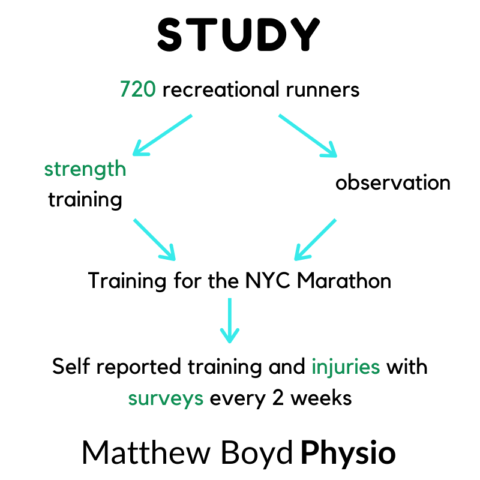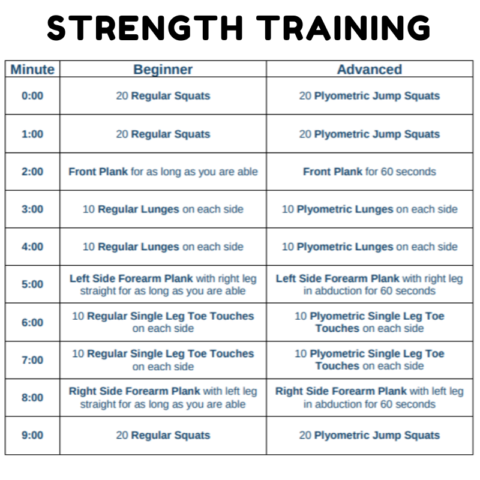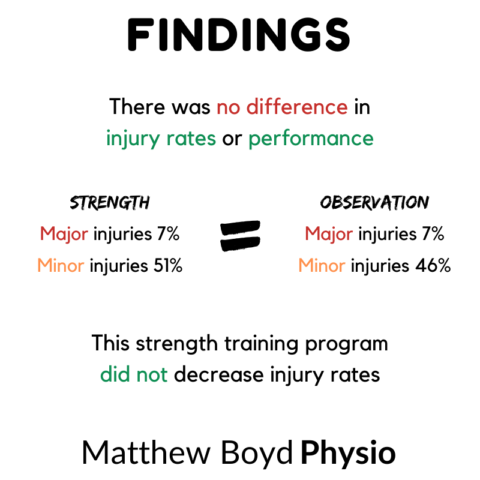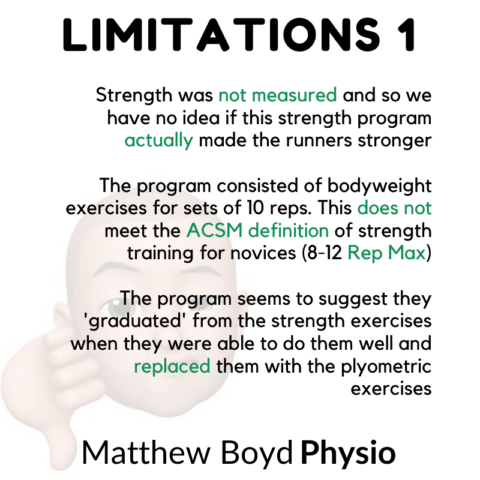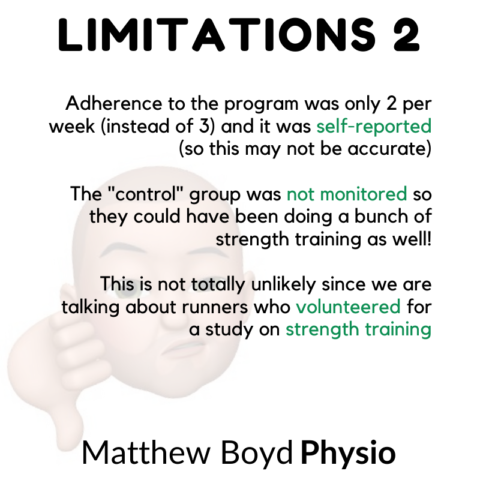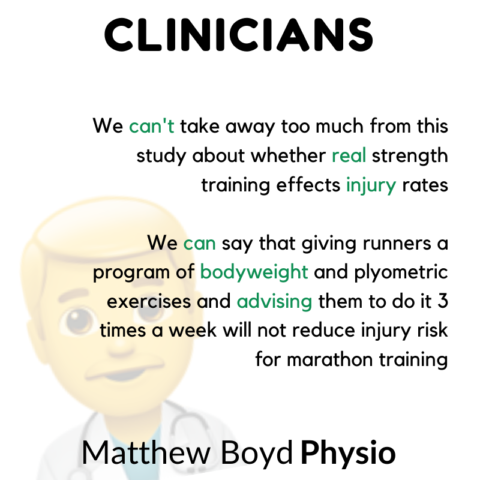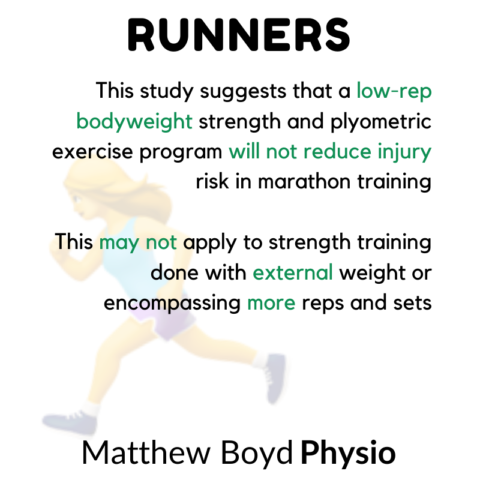In recent years, we have seen strength training become more and more popular with marathon runners looking to avoid injury. Much of this research has been done on field sports like soccer and basketball. That being said, injury risk in those studies was reduced significantly. Somewhere in the region of 50-60%.
So it’s definitely worth doing a bit of research to see if strength training can help reduce injuries for us runners. That’s exactly what a team of researchers from New York have attempted to do…
Study
- Hypothesis: A 12-week strength training program would decrease the rate of overuse injuries resulting in marathon noncompletion and improve race finishing time.
- 720 runners
- Randomized into two groups
- One strength training group, one observation group
- Self reported training and injuries with surveys every 2 weeks
- Strength training group:
- 10 minute instructional video
- 10-minute strength program, 3 times weekly, 12 weeks
- Core, gluts, quads strength
- Exercises = squats, lunges, SLDs, planks (slow version + plyometric version)
Findings
- There was no difference in injury rates or performance between the strength training and the observation groups
- Strength Group
- Major injuries 7%
- Minor injuries 51%
- Observation Group
- Major injuries 7%
Minor injuries 46%
- Major injuries 7%
- This strength training program did not decrease injury rates
Limitations
- Strength was not measured and so we have no idea if this strength program actually made the runners stronger
- The program consisted of bodyweight exercises for sets of 10 reps. This does not meet the ACSM definition of strength training for novices (8-12 Rep Max)
- The program seems to suggest they ‘graduated’ from the strength exercises when they we able to do them well and replaced them with the plyometric exercises
- Adherence to the program was only 2 per week (instead of 3) and it was self-reported (so may not be accurate)
- The “control” group was not monitored so they could have been doing a bunch of strength training as well! This is not totally unlikely since we are talking about runners who volunteered for a study on strength training
Clinicians
- We can’t take away too much from this study about whether real strength training effects injury rates
- We can say that giving runners a program of bodyweight and plyometric exercises and advising them to do it 3 times a week will not reduce injury risk for marathon training
Runners
- This study suggests that a low-rep bodyweight strength and plyometric exercise program will not reduce injury risk in marathon training
- This may not apply to strength training done with external weight or encompassing more reps and sets
Reference

